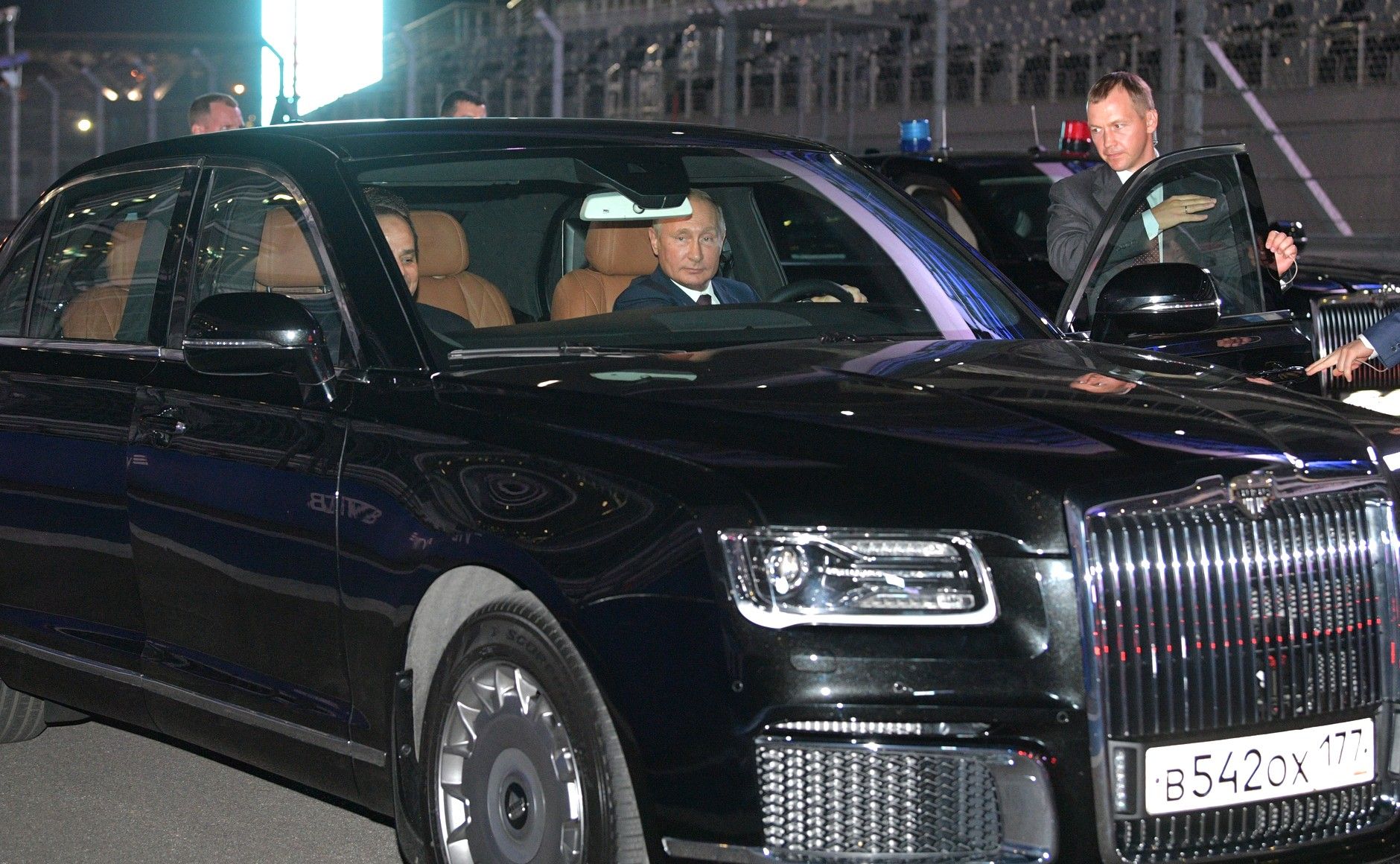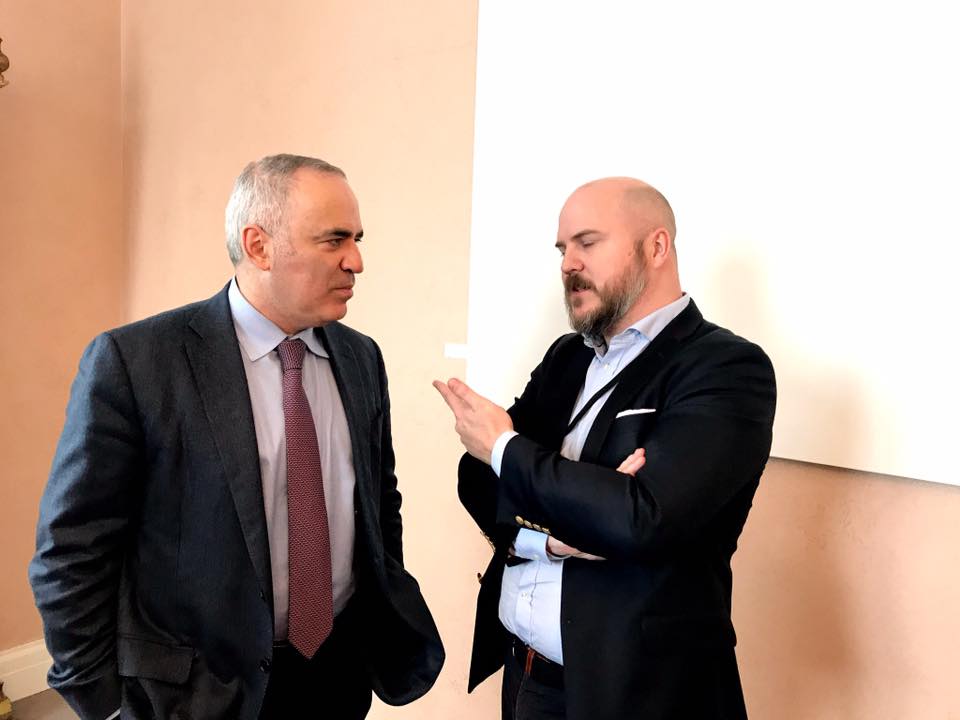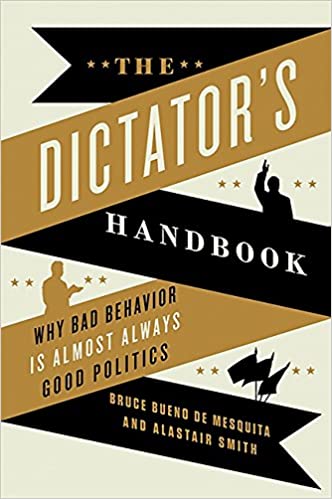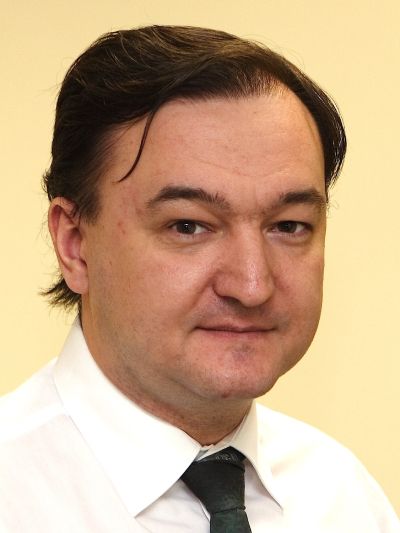💸 The Dictator's Handbook and why Magnitsky sanctions could sink Putin
Dictators don't rule alone. Use the rules that keep dictators in power and target the group keeping Putin in place with super hard Magnitsky sanctions and we will undermine his brutal dictatorship.

Today I'm CEO of Warp News and chairman of Warp Institute, but for several years I was a politician with a great interest in foreign policy and democracy. As a Member of Parliament I served on the Foreign Relations Committee, I've authored a report (in Swedish) for a think tank on an Alliance of Democracies, I wrote the proposal that led to my party adopting the stance that Sweden should raise defense spending to 2 percent of GDP. I've met Garry Kasparov, Michael Khodorkovsky and Bill Browder and discussed Vladimir Putin with them.

Understanding dictators
For understanding dictators like Vladimir Putin I think it helps to understand how power works. If we do that we can find ways to defeat them.
The key understanding is that a dictator doesn't rule alone.
No one person can alone run a country. All dictators need a group of people doing the dirty work for them, and to stay in power the dictator must make sure they remain loyal.
In The Dictator's Handbook Bruce Bueno de Mesquita and Alastair Smith lay out the rules for a dictator to remain in power:

Rule 1: Keep your winning coalition as small as possible
A small coalition allows a leader to rely on very few people to stay in power. Fewer essentials equals more control and contributes to more discretion over expenditures.
Rule 2: Keep your nominal selectorate as large as possible
Maintain a large selectorate of interchangeables and you can easily replace any troublemakers in your coalition, influentials and essentials alike.
Rule 3: Control the flow of revenue
It’s always better for a ruler to determine who eats than it is to have a larger pie from which the people can feed themselves. The most effective cash flow for leaders is one that makes lots of people poor and redistributes money to keep select people—their supporters—wealthy.
Rule 4: Pay your key supporters just enough to keep them loyal
Remember, your backers would rather be you than be dependent on you. Your big advantage over them is that you know where the money is and they don’t. Give your coalition just enough so that they don’t shop around for someone to replace you and not a penny more.
Rule 5: Don’t take money out of your supporter’s pockets to make the people’s lives better
The flip side of rule 4 is not to be too cheap toward your coalition of supporters. If you’re good to the people at the expense of your coalition, it won’t be long until your “friends” will be gunning for you.
Also well explained in this video:
Putin follow these rules
This is basically how Vladimir Putin has structured his power. Just think of the oligarchs.
Sinking Vladimir Putin
Imagine Vladimir Putin right now. The invasion of Ukraine is far from a success. Ukraine is putting on a real fight and the Russian military forces are making mistakes. At the same time the European Union and big parts of the world have struck harder than most – and probably also Putin – thought possible.
The coalition keeping Putin in power is very likely nervous. Their lifestyle and power are threatened. That is the moment when a dictator is weak and can be replaced.
Dmitri Alperovich from the Silverado Policy Accelerator tweeted about this. (In December he predicted the oncoming invasion.)
For the first time in 22 years, I am actually starting to believe that Putin’s hold on power may be on shaky ground. Not because of some Plpeople’s uprising—that’s a fanciful dream—but because there is now a small but non-zero chance of a palace coup.
The economic sanctions and diplomatic isolation of Russia is going to be very severe and will impact not just the well-known oligarchs, but many in the intelligence and military circles who have been personally enriching themselves under Putin’s regime for decades.
What’s more is they now realize that the sanctions will not end no matter what happens in Ukraine now while Putin is in power.
The war is just a few days old and it might soon go Russia's way, but the sanctions will remain in place. And if we are smart we add to them and use the power rules for dictators to maximize the chance of Putin being replaced.
Magnitsky sanctions target individuals

Sergei Magnitsky was a tax lawyer killed by Vladimir Putin after he together with Bill Browder started exposing corruption in the Russian government. This led to Browder starting a fight against Vladimir Putin and other oppressors. Well described in his book Red Notice.
I had the pleasure to meet Mr. Browder in the Swedish Parliament a few years ago. He sought support for a Swedish version of the Magnitsky Act, which the U.S. was first in adopting in 2012.
The idea behind Magnitsky sanctions is to target the oppressors and human rights violators. The ones at the top, but also the ones further down the food chain.
Use Magnitsky sanctions to target Russian oppressors
Target the oligarchs, the generals, ministers and all other relevant power players in Russia with really harsh sanctions.
Stop them from traveling, freeze and seize their assets, kick them out of every international organization, confiscate their yachts, take away their football teams – make their lives as miserable as possible.
They will then start looking for a better alternative than Putin.
If there is a coup and Putin sleeps with the fishes, that is the best opportunity for a democratic revolution. The chance of that is always biggest when there is a change in power in a dictatorship.
There might be a real chance now in the coming weeks, especially if the war continues to go badly for Russia, but even if the war luck turns we could keep undermining Putin's power structure – and eventually sink him.
